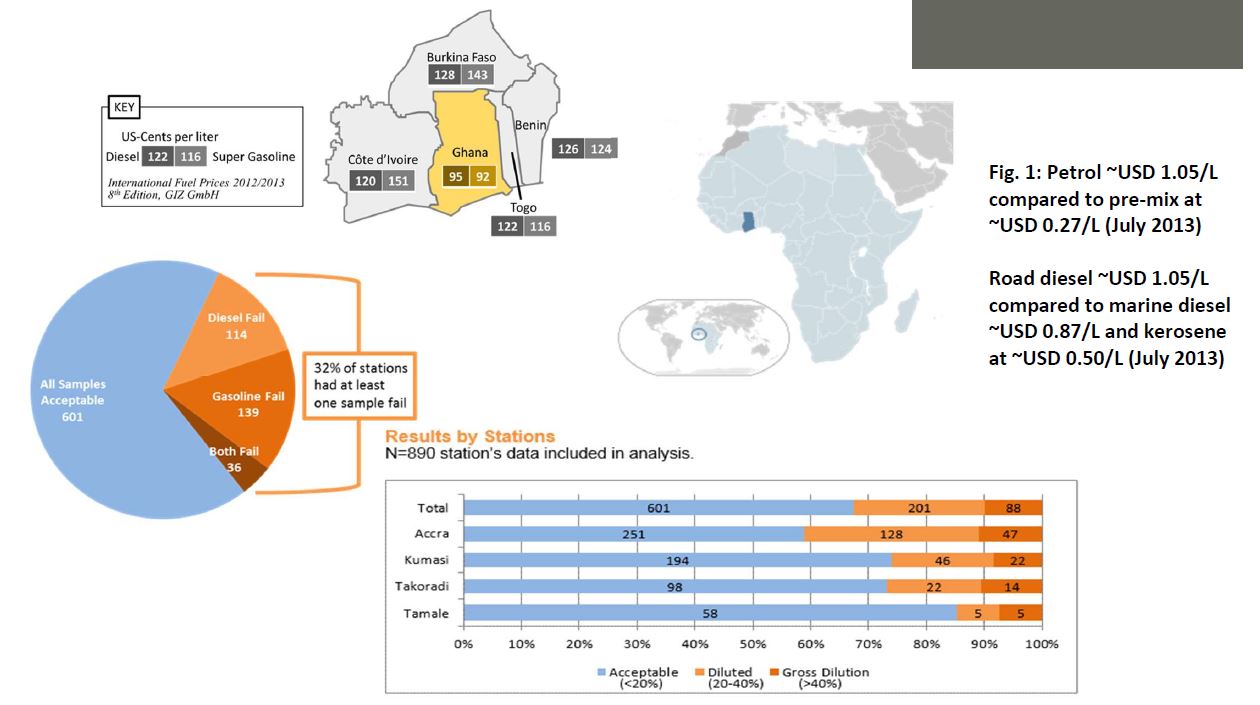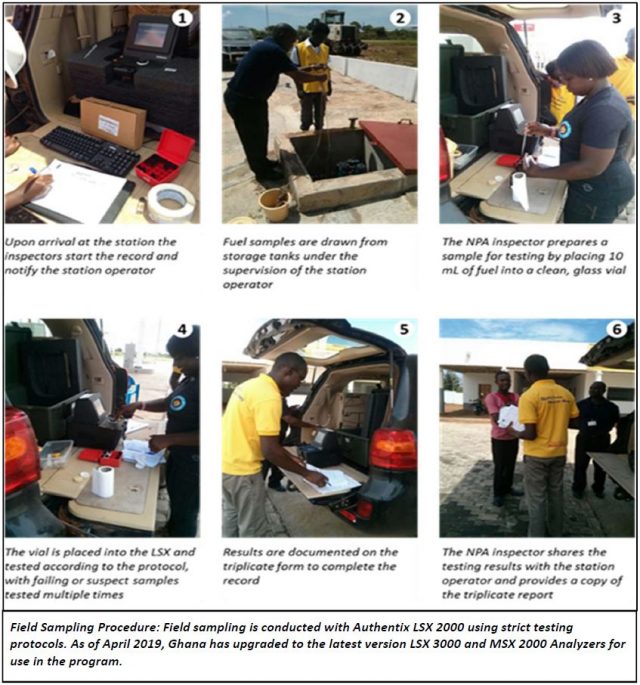Authentix uses its advanced and innovative fuel authentication solution to help the nation of Ghana combat adulteration of its petroleum products and recover lost revenue.
THE CHALLENGE
With a population of almost 28 million, Ghana is one of the fastest growing nations in Africa. It has moderate fuel taxes compared to its neighbors and limited fuel subsidies. The government of Ghana discovered that the adulteration of petroleum products offered for sale at retail outlets was degrading the quality of the available supply, while depriving the nation of significant tax revenue. In fact, baseline testing demonstrated that 32% of fuel stations had at least one tank showing dilution. Government officials estimated that the tax losses incurred because of this adulteration was more than USD 10 M annually. Ghana was in urgent need of a solution to combat adulteration of its petroleum products and recover fiscal tax revenue that was sorely needed for economic development.

THE SOLUTION
Since 2013, Authentix has been providing the Ghana National Petroleum Authority (NPA) with a fuel authentication solution. The program’s objectives are reducing deterioration in the quality of petroleum products due to dilution and adulteration whilst ensuring the appropriate recovery of fiscal tax revenues from the sale of petroleum and diesel for passenger vehicles.
Full-taxed domestic fuels are marked with a field quantitative marker for screening and dilution detection, and a forensic marker for lab confirmation. Subsidized products are marked to detect adulteration in domestic fuel. The Authentix solution is comprised the following core components:
MARKERS & DEVICES
Authentix LSX field analyzer detects dilution of taxed road fuels at fuel stations. Authentix MSX analyzer provides quantitative, forensic results in a laboratory environment. MSX analyzers are also used to measure the concentration of the MSX fuel marker that is added to fuel at the depot with the LSX marker. MSX analyzers were placed in regional labs in the largest cities in five regions of Ghana.
SERVICES & SUPPORT
- Marking operations (marker storage & reconciliation, logistics, hand-marking trucks, warehouse management, etc.)
- Field testing/sampling implementation, training, auditing and maintenance
- Laboratory implementation and maintenance
- Program management and reporting
THE OUTCOME
With the adoption of the Authentix fuel authentication program in Ghana, there has been a marked improvement in the quality of the fuel supply of the country. Additional benefits include:
- A 78% reduction in adulteration of sampled products
- An increase of excise tax collection estimated to be almost USD 9 M annually
- Improved environmental and public health benefits: In most cases, the adulterant used to dilute either gasoline or diesel affects the quality of the product resulting in vehicle engine failures and harmful environmental emissions
- The program was originally planned to mark two billion liters. Today, over three billion liters of fuel is marked, with continued
reduction in contraband and the preservation of authentic, marked fuel on the market.
The program designed and implemented by Authentix has established an international reputation as a best-in-class fuel authentication program because of its continuous improvement over time, consistent increases in recovered volumes and taxes of excisable and subsidized fuels, and the reduction in the number of samples and retail outlets showing signs of dilution or adulteration.
